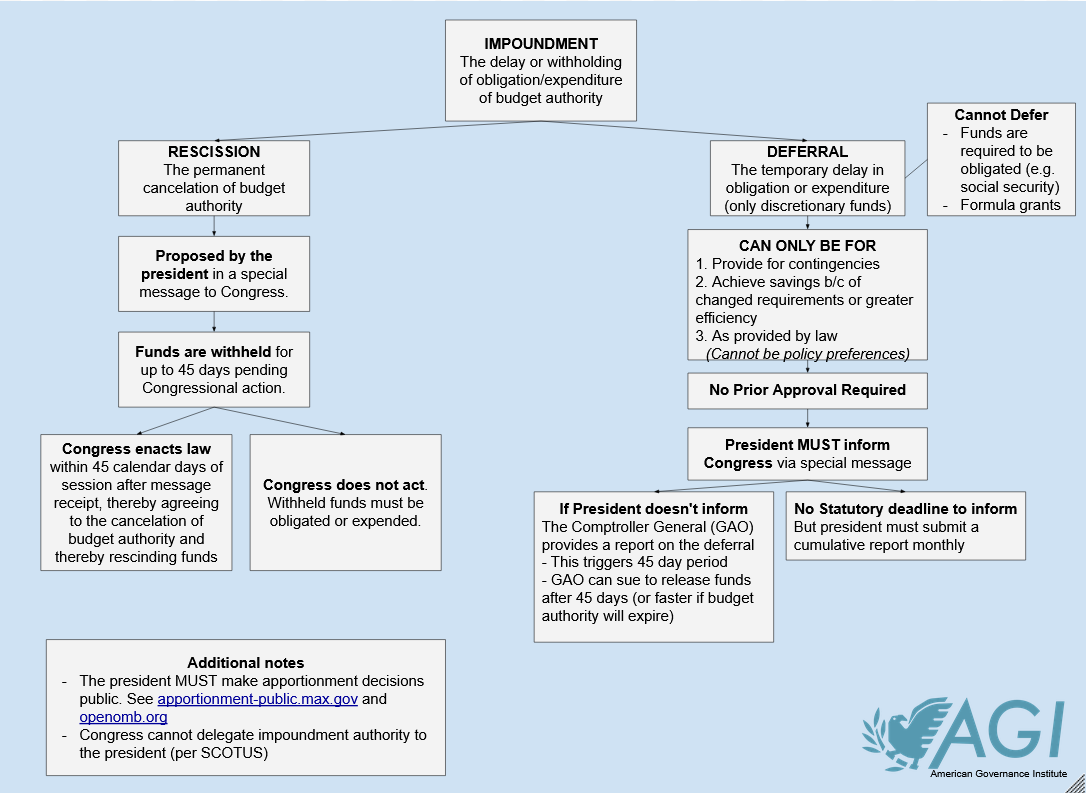Go Impound Sand
Why a little grit in OMB's gears might be good for government
This past week Donald Trump finally became president, unencumbered by the remains of the Republican party and fueled by a will-to-power.
Trump's major technique of exercising control is to flood the zone. Beyond his logorrhea, this includes promulgating a mixed bag of executive orders and actions that range from unconstitutional to illegal to unwise. It also includes rushing the Senate to confirm his cabinet nominees, many of whom never would be confirmed by a Republican Senate had they been nominated by a different president. And it includes an assault on public servants, from the newly hired to the Inspectors General responsible for rooting out corruption.
The major political response to Trumpism is acquiescence and disarray. Many new Democratic freshmen, so-called moderates, voted in favor of Trumpian red-meat bills that will have dire effects when implemented. Most remaining traditional Republicans in Congress are unwilling to stand up to Trump, having largely been purged or intimidated into silence.
Some Democrats are signalling they are unwilling to use their leverage over the debt ceiling and federal spending to extract policy concessions or protections for democracy. This is what they told POLITICO:
And in more than a dozen interviews with House Democrats, none were willing to suggest that their party would allow a government shutdown or debt default if Republicans don’t play ball on spending negotiations before a mid-March deadline.
This is bad politics. They are acting as the political heirs of Marshall Pétain, when they should take inspiration from de Gaulle. Democrats should fight on their own terms, drawing up a list of preconditions for any negotiation. This could be a win-win situation for Democrats: let Republicans vote on the debt ceiling, causing that party to split and illustrating the inability of Republicans to govern, or demanding their priorities make it into any proposed legislation and require changes in procedure in the chambers so that they have a fighting chance.
Republicans not fully aligned with the Trump agenda are largely engaged in duck-and-cover. For example, Sen. McConnell voted against Defense Secretary Hegseth's nomination, joining Murkowski and Collins. Can the former majority leader not command the support of any other senate Republicans to block Hegseth? Surely he could, had he so desired. The ultra-partisan former leader can be anticipated to vote against the nominations of Gabbard and Kennedy, but he’s always hated the Democrats. Will McConnell work to shape the cabinet? Will he stand up for a system of checks and balances? Just like with the Trump impeachment, there's no evidence to believe he will act, but I hope that I am mistaken.
As for our resident strongman, Trump will continue to flood the zone because it is working. The Trump administration can use federal resources to open up battles on dozens, if not hundreds, of fronts, and sustain the cost of those battles using the public treasury. Opponents of Trumpism – anyone who supports a pluralist democracy – lack the financial resources to fight on all front. Many are refusing to fight on any.
Fifteen years ago, Obama and the technology companies made common cause, working to modernize government in a technocratic revolution. Today, the technology companies have aligned themselves and their considerable resources with Trumpism. The alignment of power, money, and propaganda with control over nearly all of the government should make matters obvious for Democrats. In the words of Marine General Puller: "We’re surrounded. That simplifies the problem." His next step was not to surrender.
Impoundment
It was not surprising that the Trump administration moved to impoundment as a mechanism to destabilize Congress and assert control. As you know, impoundment is when the Executive branch decides not to spend money that Congress already has directed to be spent. Generally speaking, impoundment is illegal.
I’m not going to write 2,000 words on this — in part because I wrote about impoundment last July in the subtly titled article “The Trump Administration’s Plan to Seize Control of Spending” — but I will quote from Matt Glassman’s excellent November article on the political ramifications of impoundment.
This is extremely important, because if the president can choose to not spend money that Congress has appropriated and directly demanded be spent, then the president can essentially cancel any program Congress sets up that requires funding. That’s an immense amount of power. And in my view it is a violation of the Take Care clause of the Constitution, which requires the president to faithfully execute the law. It seems totally illogical that the president could legally refuse to spend any money appropriated for the Department of Justice, simply because he decided we shouldn’t have a federal criminal code, or out of spite because Congress wouldn’t go along with his reform program.
In short, impoundment destroys the appropriations process. How can you bargain in good faith when the president can come in after you enact the law and blow it up?
Law professor Steve Vladeck also has a thoughtful piece yesterday on impoundment that covers Congress, the Court’s and even DOJ OLC’s views on impoundment. Come for his analysis, stay for the links to primary materials.
I will point you to the joint letter from House Appropriations Chair Ranking Member Rosa DeLauro and Senate Appropriations Chair Patty Murray, laying out their views on impoundment and urging Acting OMB Director Vaetz to cut it out and follow the law. So far, it still takes 60 to make spending bills work, so they can’t be ignored.
So how does impoundment work? Because I’m a nice guy, I put together this handy impoundment flow chart.
To cut to the chase: the president’s spending “delay” is a deferral. He may not yet have provided notice to Congress, but he is required to. Even if he doesn’t provide notice, GAO will start the clock. After 45 days they can sue to release the funds. In addition, recipients of the grants who are affected by their withholding can sue immediately and seek a temporary retraining order, and that appears to be happening, with lawsuits from non-profits, small businesses, schools, and so on.
People concerned about this course of events should consider whether they really want the architect of this approach, OMB nominee Vought, to return to office. Even slowing that down and extracting concessions would be a useful exercise.
The Inspector General Massacre
I’m sure you’ve read about Trump’s attempted firing 18 inspectors general. These are the independent watchdogs that police waste, fraud, abuse, and misbehavior at federal agencies. They are good at ferreting out misconduct and provide a significant return on investment.
Their insistence on following the rules and identifying agency best practices is in line with the Trump Administration’s stated aims, but in practice would pose a barrier for Trump’s consolidation of power. It took more than 40 years to build up their capabilities and protections. Recently, Congress required the president to give a reason to Congress and 30 days notice when he chooses to fire an IG. In my opinion, the IGs should be appointed to a fixed term, be chosen by CIGIE, and only be fire-able for cause, but that’s not the law.
Trump couldn’t even satisfy the law’s minimal notice-and-explain requirements. The attempted firing prompted the Council of Inspectors General to respond with a mild-toned letter reminding the administration that “the law must be followed to protect independent government oversight for America.” In other words, the attempted firing is inoperative.
The newly created Senate IGs caucus, led by Sen. Joni Ernst, includes Sen. Chuck Grassley as a member. He’s not just a member, but also the Chair of the Senate Judiciary Committee. Ruh roh. It is in that capacity Grassley sent a letter along with Sen. Durbin, the ranking member of the Senate Judiciary Committee, seeking an explanation for the IG dismissals. Here’s their main point:
Accordingly, we request that you provide Congress with a written communication that contains the “substantive rationale, including detailed and case-specific reasons” for each of the IG’s removed. Further, we request the name of each official that will serve in an acting capacity and that you work quickly to nominate qualified and non-partisan individuals to serve in these open positions.
Is the letter as strong as it could be? No, it’s not. They could demand the IGs be left in their roles. But it is not unreasonable to wait for Trump’s justification to see if it’s valid before taking that step. I wouldn’t wait too long.
Back in 2020, Grassley blocked two Trump nominees over his refusal to explain watchdog firings, so the Trump administration should know he is serious — and has the capability of escalating if their justifications are unsatisfactory.
A final point on this. The problem is not (only) that Trump violated the 30 day notice rule, a federal law. The problem is that Trump is getting rid of independent agency watchdogs and will seek to replace them with lapdogs. Those who are attacking Trump for violating a weak law are missing the point! Trump is firing the investigators who fight government corruption.
It is Congress’s job to protect them! They have the means to push back — holding up nominees, holding up appropriations, holding hearings, writing letters. They can demand the IGs be reinstated and pass laws that provide additional protections. Democrats can gum up the works to encourage Republicans to resolve the issue, and Republicans can stand up for their prerogatives as members of Congress. Members can work the press to make the firing toxic.
The IGs work to keep the government honest. The firings are corrupt. They must be reversed.
But wait, there’s more
I have a lot more to share for this week’s newsletter, but I’ve run out of steam. Here’s a few items to watch:
Ted Cruz is trying to fix the Commerce Committee’s rules to gain absolute power… over subpoenas and other stuff. This is bad.
The British Parliament has issued new AI guidance for parliamentarians. (I’ve updated my tracker.)
SSCI might hold an open vote on DNI nominee Tulsi Gabbard, which would be a good precedent as we should know how committee members vote as a general rule.
House Appropriators announced the first date for public witness testimony before the committee. (I’m keeping track)
The House Admin committee has organized. Am I the only one that noticed that eligible congressional member organizations can now spend their funds to build mobile apps?
Reps. Boebert and Mace are playing bathroom cop, checking whether people in the restroom look like women. Yikes.
Finally, you might have noticed that Twitter sucks. It’s algorithm is broken, is elevates nasty speech, and we don’t need to talk about its owner. I’ve moved completely over to Bluesky and deleted all my old tweets. It’s a little complicated, but I followed these instructions and it works.
And now, a message to Elon from Mel Brooks.



